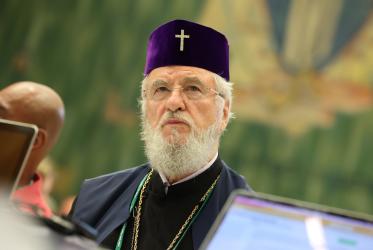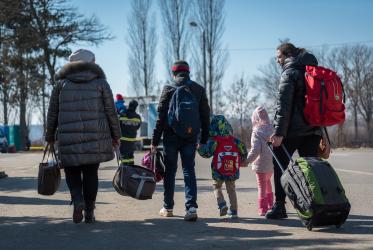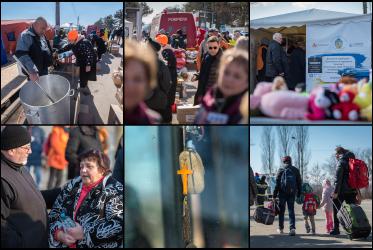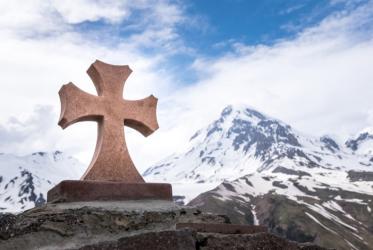Iglesia Evangélica Luterana de Rumania
(formerly Evangelical Synodal Presbyterial Lutheran Church of the Augsburg Confession in Romania)
Most congregations of the Evangelical-Lutheran Church in Romania have a 450 year old history which goes back to the time of the Reformation. These congregations belonged to the German-speaking Evangelical Lutheran Church in Transylvania, even though they were Hungarian-speaking, until 1896 when they founded their own diocese. Until World War I the diocese was part of the Evangelical Lutheran Church in Hungary. When Transylvania became part of Romania after the war the Hungarian-speaking congregations were cut off from the motherland and had to organize a new office with a superintendent. The church was founded in 1921. Later on, the Slovak Lutheran congregations and a Romanian Lutheran congregation in Bucharest joined. Four languages are used in the church: Hungarian, Slovak, German and Romanian. Most communities are far away from each other, which makes the ELCR a diaspora church. There are 122 diaspora centres and 118 preaching places.
Some congregations are growing, and new facilities are developing in their work. Activities of diakonia are expanding in all the congregations. People who lost their connections with the church during communism are coming back. Also those who migrated from villages to the urban centres are joining the congregations in the cities. Young people gather around the church because they want something more then just regular life. They hunger for the gospel. The church has founded the Evangelical Youth Association in Romania (EYAR). There are different kinds of youth camps and youth programmes every year. The youth also organize monthly meetings in different congregations. Women are involved in different administrative and diaconical activities. Every year they organize various kinds of meetings. The ELCR has programmes at various radio stations, which are used for evangelism, introduction of the church and the Lutheran confession, information and news from the church and worldwide for the church members. Another important tool for communication and building the church is the website, which is still being developed. Each congregation will have its place, and all the pastors their email addresses with the [email protected]. It will be in the four languages and will also have a section in English.
The ELCR together with the Reformed and the Unitarian churches, and the German-speaking Evangelical Lutheran Church supports the (Hungarian-speaking) Protestant Theological Institute in Cluj, where its pastors are being trained The pastoral ministry is open to women since 1940. Presently there are nine ordained woman pastors. The church is also very active in the ministry of diakonia. In spite of the present unstable economic situation in Romania, the ELCR is able to cover its ministries. However for big projects and infrastructure it needs external support.
The ELCR has relationships with Lutheran churches and institutions in Hungary, Germany, Denmark, Finland and Norway.





